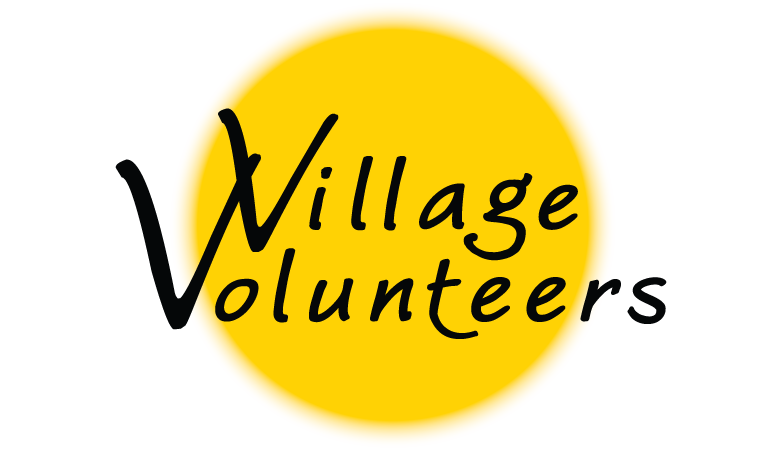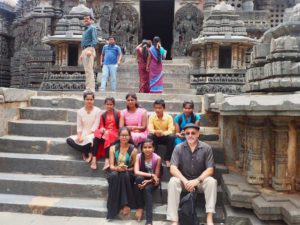Interview conducted by Intern Jessica Miller
From providing a network of volunteering opportunities abroad to working on collaborative initiatives, Village Volunteers seeks to empower communities around the world. With a variety of initiatives and partnerships with organizations in areas of India, Ghana, Kenya, and Nepal, Village Volunteers continually seeks people devoted to the welfare of others. Sam Tuttleman recently volunteered in India with the Coorg Organization of Rural Development to aid in the legal and economic development of the indigenous Adivasi peoples. Upon his return, we had the chance to interview him about his experience working in the southern Karnataka State of India.
How did you begin working with Village Volunteers and CORD?
“I have done international volunteering before and was looking on the internet and came across Village Volunteers. I liked what I saw there and ended up in a series of conversations with Shana.”
What has your experience been with non-profit organizations? Specifically Roy, Shammi, and your experience in India?
“I retired six years ago and had spent most of my life working with various non-profits, so I have a great deal of familiarity with non-profits. On a many levels it was a very positive experience. I’ve been in Uganda, Cambodia, the Republic of Georgia, and I have to say this trip was probably the most in-depth experience, and my experience of living and working with Shammi and Roy made me feel like a part of their family. I just really got a wonderful sense of what their family is like. For me, part of volunteering is wondering who’s getting more out of this – the place where I’m volunteering or me? And I think in this case I clearly did some things that were of value to them, but I also really feel like I got the sense that their slice of life in that part of India really came alive for me.
To speak about Roy, Roy has a fire for human rights that goes back to his teenage years. He bears the marks of a very serious attack when he was trying to organize workers when he was 18. You can see the machete marks all over him, and he has been upfront in the struggle for the rights of native peoples in India for over 30 years. He is incredibly knowledgeable, and I spent a lot of time going with him to various villages. You can tell by the way people respond to him that people respect him and the contribution that he has made.
Shammi is a very intelligent and capable person. She not only runs the household but she is instrumentally involved in a child abuse hotline, and there are constantly people in and out of their house. On top of that, they also support 22 to 25 young people who cannot live at home anymore, and they support them through boarding school. So, in addition to everything else she does, she’s also organizing educational activities for these young kids.
It was really interesting getting to meet not only the staff that work for the national abuse hotline, but all of these local people who showed up during the time I was there. My only complaint was that she was stuffing me with food to the point that I thought I was going to come back weighing 600 lbs. They have an organic farm, and the meals are really good.”
What can volunteers such as yourself do to be effective and contribute to the environment that they’re living in?
“I was there for 7 weeks, and I think there’s a real difference if you’re going there for 2 weeks versus a lot longer. Something I’ve learned is to be humble and observe. A lot of what we observe in the West as useful knowledge may or may not be useful. It’s important to observe what people want from you, and not what you think they want. I would say that you need to be prepared to put aside what you thought things were going to be like and pay attention to what they really are like.
I also try to minimize the cultural faux pas, which are hard to eliminate. When people signal yes its a head wag that looks a lot like us shaking our head when we’re saying no. It’s not quite the same but it’s enough that it’s very disorienting. When somebody would ask me a ‘yes or no’ question, when I meant yes I would have to consciously shake my head no to acknowledge their question.
So it’s little things like that, and I think the other thing is to go into it with the attitude that you’re probably going to learn more than you’re going to give back. That’s really important because there’s something really respectful about the whole process of learning things and signaling to the people that you’re learning and paying attention.”
What exactly does CORD do, and what is the nature of their programs?
“CORD works with Adivasi, which are the native peoples of India, and that struggle has been going on for 30 or 40 years. In a lot of ways the issues are the same as with native peoples here in the US. Roy has been involved in that struggle as a leader and essentially what the focus of the work is trying to fully implement a law that was passed in the 90’s that gave these native peoples rights to land in the forest, which the government has not done a good job of implementing. They’re also working on economic development for the different tribal groups, and helping them develop organic farming schools, harvest products and in turn sell them in order to have a reliable resource base. Roy is involved both on the national level and regional effort in the area where CORD is located. The other half of what CORD does is work with children. There is the child abuse hotline, the young people who end up being subsidized by CORD and end up living there. In addition, they do have an organic farm so there’s a real opportunity for someone interested in organic farming. There are also educational opportunities in the schools and communities surrounding CORD.”
Were there any specific times when you were made vividly aware of the issues that the community faces?
“Given that CORD’s main work with native peoples is advocacy work, from when I got there it was really clear that their work with the Adivasi is really part of this ongoing struggle for them to be able to attain their rights and develop a solid economic base. So, it was really clear.”
What has been your overall impression of CORD?
“I think the work they are doing is really righteous work. There were specific things I was doing mostly on the funding side, but for someone interested in organic farming there are a lot of opportunities. I think for people who are interested in learning more about native peoples in a country other than the US, it would be a really interesting opportunity. I got to go to a number of village meetings where some important decisions were being made and it was sort of mind boggling given what is happening in this country, to watch real grassroots democracy unfold before my eyes.”
Sam closes out our interview with a final quote to sum up his experience in India –
“I found [the program] to the best of all the various worlds of the different experiences I’ve had in different countries. Luckily, I was able to do some things that really did make a contribution because I’ve had experiences where you go and it isn’t really clear why you’re there. In this case, I feel like I gave as much as I’ve received, and to me that’s really good where there is a sense of equality in what you’re giving and what you’re receiving.”

